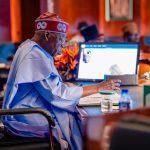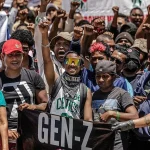By Kabiru Abdulrauf
When Vice President Kashim Shettima returned to Abuja after a week-long diplomatic shuttle between New York and Germany, he brought home more than just the echoes of speeches and handshakes. His mission had been clear: to project Nigeria’s voice on the global stage, deepen international partnerships, and secure opportunities that align with President Bola Tinubu’s agenda of economic renewal and global relevance.
Representing President Tinubu at the 80th United Nations General Assembly, Shettima delivered Nigeria’s national statement with conviction. He called for comprehensive reforms of the UN system particularly the Security Council arguing that Africa’s exclusion from permanent membership undermines the principles of fairness and inclusivity in global governance.
Shettima also drew attention to Africa’s $700 billion mineral resources, insisting that the continent must retain sovereignty and value from its natural wealth, rather than continuing the cycle of exploitation by external powers.
Beyond the speeches, Shettima engaged in bilateral meetings with leaders and institutions. A highlight was his meeting with UN Secretary-General António Guterres, who commended Nigeria’s push for a permanent Security Council seat an endorsement that adds weight to Abuja’s long-standing ambition.
The Vice President also engaged with the United Kingdom, the Gates Foundation, and other partners on issues ranging from health to economic development, strengthening Nigeria’s case as a reliable player in global cooperation.
Nigeria’s energy transition plan, valued at $200 billion, took center stage during Shettima’s conversations with investors. He framed it as both an environmental commitment and a market opportunity, designed to attract financing into clean energy projects that could power Nigeria’s next phase of growth.
In his outreach to Nigerians in the diaspora, Shettima reassured them of closer engagement, emphasizing that their skills, remittances, and influence abroad remain crucial to Tinubu’s national renewal agenda.
From New York, Shettima moved to Germany, where his engagements focused on trade, technology transfer, and industrial partnerships. Analysts say this European leg underscored the administration’s strategy of diversifying Nigeria’s international alliances beyond traditional partners.
Shettima’s diplomatic mission was as much about optics as it was about outcomes. By delivering Nigeria’s message firmly at the UN, securing endorsements for reform, and pitching concrete economic opportunities, the Vice President underscored a simple truth: Nigeria is seeking not just to participate in the global order but to help shape it.








